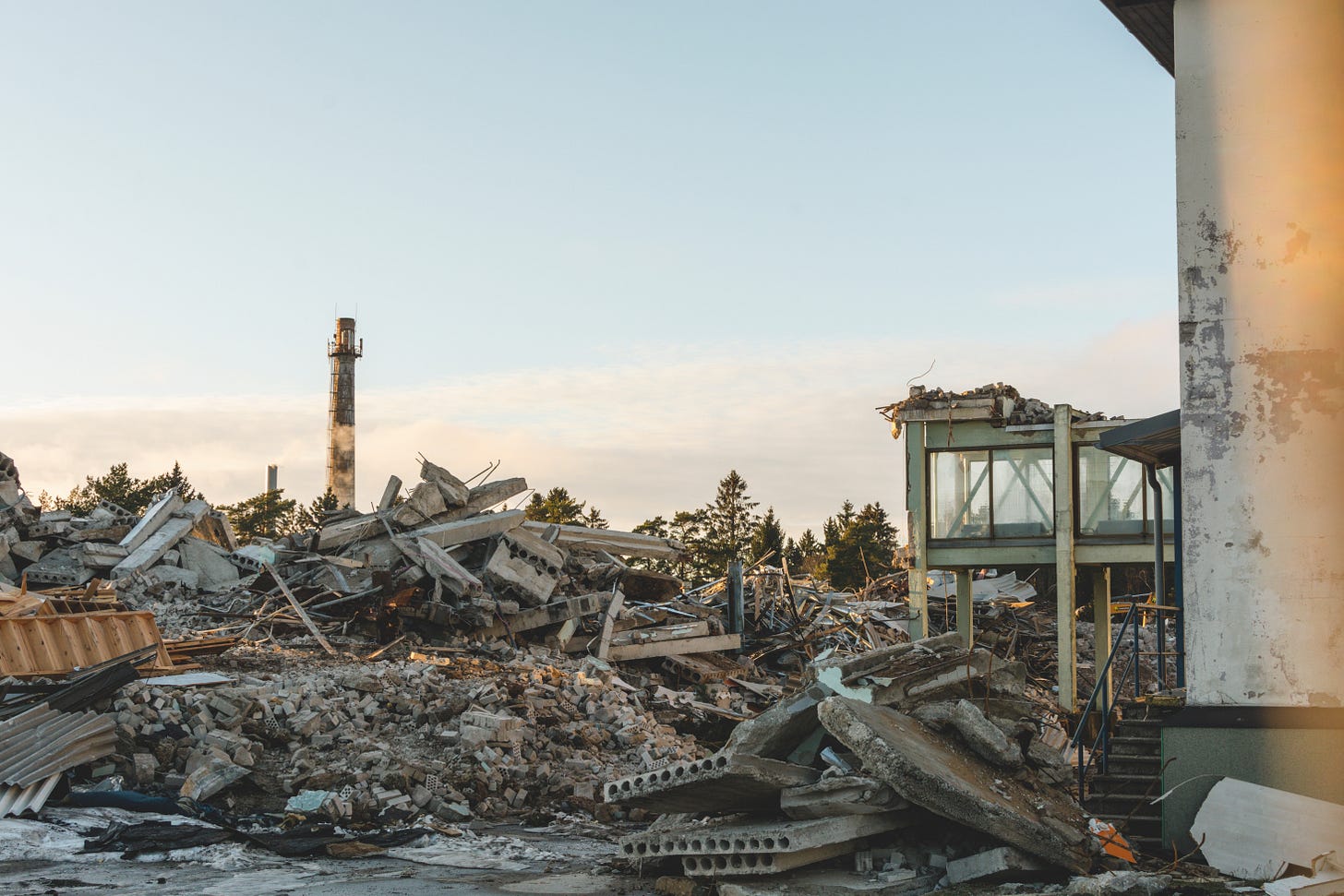Modern Hell #4: System collapse (Part 1)
Our personal breaking points may help us recognise the many others that surround us
In fairness, I joined the line late, in the mid-afternoon. Tasked with now trying to find a third dose of the Covid-19 vaccine, I duly lined up at a pop-up drop-in clinic at a school near my house, only to be told after about 30 minutes of waiting that all the adult doses were already gone or assigned to people ahead of me. There was grumbling and sighi…


